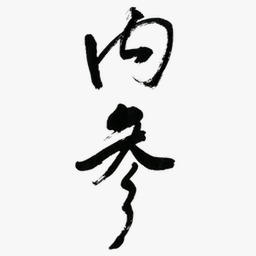Taiwan election 2020: predictions

Adam: a cafe where the student leaders of the Sunflower Movement came to make plans was a fitting place to talk about Taiwan politics. Lev studies Taiwan and HK social movements and party politics, and I was immediately impressed. So, I invited him to write an article for Neican on the upcoming Taiwan elections next month. For those wanting more than the short article below, we also recorded a long podcast.
Lev Nachman, PhD candidate, University of California, Irvine
Although Tsai Ing-wen is currently poised to win Taiwan’s presidential election, her Democratic Progressive Party (DPP) may not hold onto its majority in Taiwan’s parliament, the Legislative Yuan. If the DPP wins the presidency but loses the Legislative Yuan, expect four years of little to no legislation getting passed. If they win both branches, then expect more legislation in the future geared towards progressive reform.
Before summarising some of the complexities from Taiwan’s upcoming election, there are two particular items worth keeping in mind about Taiwanese politics:
First, the most critical issue during Taiwanese elections is the independence/unification cleavage regarding the role of China. Public opinion data shows that in every presidential election since 1996, the independence/unification issue is the most salient topic for voters.
Second, it is important to keep Taiwan’s electoral system in mind. Taiwan uses a mixed system of first past the post-presidential and district candidate elections and proportional representation party votes. When citizens go to the ballot box, they vote for their president, district representative, and finally the party they wish to support.
For the presidential and district candidate elections, the winner simply needs the most votes, which usually leads to only two candidates running against each other. Proportional representation party votes, however, allow for citizens to express their support to a party regardless of who is running in their local district or president. If a party makes it past at least the 5 per cent threshold, they are qualified for proportional representation (list) seats in parliament.
Despite a turbulent four years lacklustre reform and a failed midterm election, DPP presidential candidate Tsai Ing-wen is strongly ahead of the opposition Kuomintang (KMT) candidate Han Kuo-yu in the polls. If the election were tomorrow Tsai would likely win. The presidency, however, is not the only critical race worth paying attention to. Currently, the DPP holds a majority within Taiwanese parliament, the Legislative Yuan. Despite Han’s low numbers in the polls, the KMT itself is not nearly as unpopular as it was during the 2016 election and is currently poised to regain much of its lost territory in 2020. Even with the recent spy case scandal or the ongoing Hong Kong protests, the KMT is not in nearly as weak of a position it was last election. Its electoral odds should be taken seriously.
The Legislative Yuan race is currently more contentious than the presidential race. If the DPP loses its majority in the Legislative Yuan but wins the presidency, its ability to push policies or advocate for progressive reform will be stalled out by the KMT. Just like most democracies, Taiwan’s separation of powers limits the president from pushing policy without the approval of the Legislative Yuan, meaning Tsai will be largely unable to continue with the DPP’s agenda of strengthening Taiwan’s sovereignty rather than tying itself closer to the CCP. But, if they are able to maintain their majority in the Legislative Yuan, then the DPP will still be able to push for change.
One other issue on everyone’s mind is Hong Kong. The protests have become an important talking point for politicians across the aisle this election, but not in the way people may think. Although the Hong Kong factor may seem like a convincing explanation for Tsai’s success and Han or the KMT’s losing this election, its actual impact on public support limited.
We can see their lack of impact from a number of places: first, public opinion trends pushing Tsai’s approval up and Han’s down began months before the protests began. Second, their increase and decrease has not spiked or dropped with any events in Hong Kong. Finally, a number of critical domestic factors played an equally strong if not stronger role on public perceptions of Tsai and Han than Hong Kong, including Tsai’s massive PR revamp helping her win the DPP primary, or Foxconn CEO Terry Gou’s attempt to steal Han’s position within the KMT.
Both Tsai and Han have actually come out in adamant support of the protesters and the right of Hong Kongers’ for universal suffrage. It is unlikely that undecided voters will look to Hong Kong and presidential candidate’s responses to the protests to decide who to cast their ballot for.
